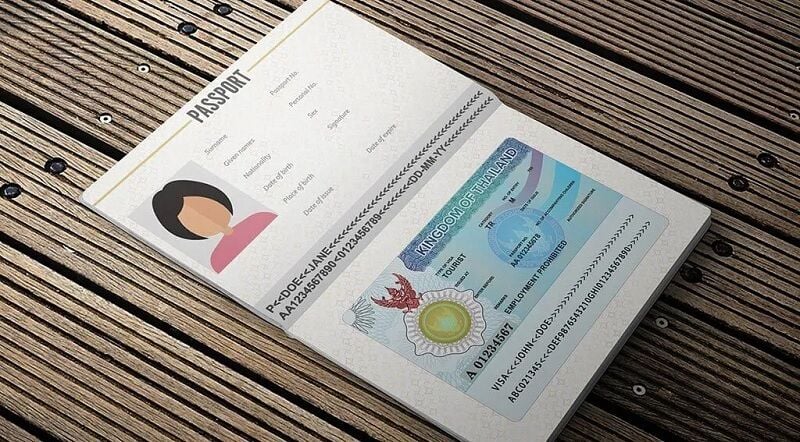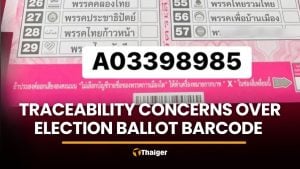Things you should avoid doing after retirement in Thailand

Dreaming about sipping fresh coconut water on the beautiful beaches of Thailand when you retire? You are not alone. Thailand is super popular among retirees because of its stunning landscapes, yearlong tropical weather, and affordable lifestyle. But we all know that retirement is not just about hammocks and sunrise swims, right? There can be a few bumps on the road that we want to merrily skip past to have a happy-go-lucky post-work life.
Now let us dive into this blog post. We are here to spill the beans on some common little obstacles folks often run into when retiring in Thailand. But don’t worry, from money mix-ups to cultural confusions, we have got your back to get you smoothly across the finish line. So, put on your adventure hat and get ready to learn how to make your retirement in the Land of Smiles.
Financial missteps to avoid

Retirement in Thailand seems enchanting with a comfortable and affordable lifestyle at your fingertips. Do not neglect, however, the financial disciplines that will keep your retirement experience smooth. Remember the correlation between a sound understanding of your financial situation, and the success of your retirement journey.
Overestimating your budget
Planning your retirement in Thailand can maximise the value of your retirement fund compared to residing in your native country. However, it’s crucial not to underestimate your financial planning, assuming an endless budget. You need to take into account variables like living expenses, unforeseen costs, exchange rate instability, and the unavoidable occurrence of inflation when strategising your financial plan. For example, the allure of Thailand’s acclaimed street food may lead to a gradual rise in food expenses.
Ignoring Thai tax implications
Living in Thailand does not exempt you from paying taxes. Thailand’s taxation system might differ significantly from what you’re used to. For example, as a retiree in Thailand, you might encounter tax obligations on your worldwide income, dependent on your tax residency status. Consultation with a tax professional is crucial here. They can guide you through Thai tax laws, helping you understand your potential liabilities, and thus allowing you to avoid any unexpected tax bills.
Health and medical care mistakes

Transitioning into your retirement, especially when you’re doing so in a foreign country like Thailand, requires crucial attention to health and medical care aspects. Avoiding certain mistakes can ensure you’re properly covered in both these areas.
Neglecting health insurance needs
Foregoing or neglecting health insurance can land you in hot water. A fine balance exists between trying to save on insurance premiums and ensuring complete coverage. Opting for local insurance providers in Thailand generally works out as more cost-effective. However, you’ll want to ensure it offers comprehensive coverage for various treatments, including for chronic or serious illnesses.
Underestimating healthcare costs
Healthcare expenses can significantly impact your retirement budget if not properly estimated. Thailand is widely recognised for its relatively affordable healthcare compared to Western nations. However, it’s not prudent to count on these costs remaining low, particularly in the event of unforeseen health complications. Allocating a substantial portion of your budget towards healthcare – encompassing possible hospitalisations, medications, and routine medical check-ups can help ensure your financial stability throughout your retirement years in Thailand.
Cultural and social pitfalls

Thailand’s culture, shaped by centuries of tradition, demands respect and understanding from its guests. Delving into life post-retirement presents unique challenges, particularly in handling cultural nuances.
Overlooking local customs and etiquette
Thailand is known for its rich traditions and customs. Ignoring these could lead to uncomfortable situations or even legal troubles. For example, showing disrespect to the monarchy is a serious offence in Thailand. You must handle images of the king with utmost respect, even those in Thai currency.
Avoid touching a person’s head, considered a sacred body part in Thai culture. Always remove your shoes before entering any Thai home or Buddhist temple – an important custom that you must not disregard. Public displays of affection are frowned upon, and covering your shoulders and knees is mandatory at religious sites.
Isolating yourself from the community
Retiring life in Thailand does not have to be an isolated or lonely experience. By actively participating in local events, visiting markets and eateries, and engaging with your neighbours, you will glean invaluable cultural insights.
Even mastering basic Thai phrases can make your daily exchanges more effective and meaningful. Your involvement in local festivals like Songkran or Loi Krathong can foster stronger ties with your community.
Dodging these potential social and cultural missteps during your retirement should smooth your transition and enrich your golden years in Thailand. High value is placed on fostering robust cultural connections for a rewarding retired life in Thailand.
Legal and visa compliance

When planning your retirement in Thailand, handle all legal matters diligently. It is pivotal to be aware of Thai law and visa requirements. Do not make the mistake of ignoring these.
Ignoring visa restrictions and requirements
Thailand visa regulations can be complex. Forgetting its importance and ignoring it leads only to problems. There’s the retirement visa (non-immigrant O-A visa), with specific restrictions and requirements. This visa mandates you to be at least 50 years old and have sufficient finances, a minimum of 800,000 Thai Baht in a Thai bank account or a monthly income of at least 65,000 Thai Baht. Furthermore, it’s compulsory to report to Immigration every 90 days.
Failing to keep documents updated
Keeping your documents updated avoids inconvenience. Expired visas, for example, result in fines or worse, imprisonment. Renew your visa and keep all related documents up-to-date. Having copies of important documents like your passport, visa, and bank statements helps in the case of theft or loss. Regularly update your home address with the Immigration Bureau if it changes. The failure to do so results in fines. Remember, maintaining up-to-date legal documents ensures a hassle-free retirement experience in Thailand.
Property investment errors
Avoidance of property investment pitfalls forms part of a wise retirement in Thailand, as buying property here differs from other countries. Under subsequent sections, we’ll delve into a couple of common errors retirees often fall into.
Misunderstanding property ownership laws
Thailand has a unique property ownership structure, the misunderstanding of which can lead to big losses. Learn exactly what Thai law allows for before acquiring any property. For instance, foreigners typically can’t own standalone houses; they can, however, own condominium units, provided the total foreign ownership of the building doesn’t exceed 49%.
Rushing into purchases
Hasty decisions in property acquisition may lead to adverse consequences over time. Past records show retirees making property investments without proper research and consequently experiencing less than satisfactory results.
It is essential to patiently understand the real estate market, collaborate with a respected agent, and perform thorough inspections before entering into any legal agreement. Carefully watching out for warning signs like aggressive sales tactics or deals that seem overly advantageous is advised as these could mask potential problems.
You can also check out why you should not carry cash in Thailand, While Thailand’s tourism popularity continues to escalate with over 4.6 million Malaysian visitors last year it is crucial now, more than ever, to understand the unique travel requirements of the country. Weighing your options regarding carrying cash in Thailand can significantly streamline your visit.
Latest Thailand News
Follow The Thaiger on Google News:


























